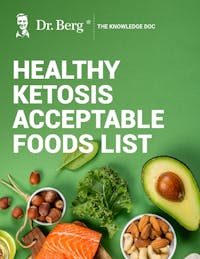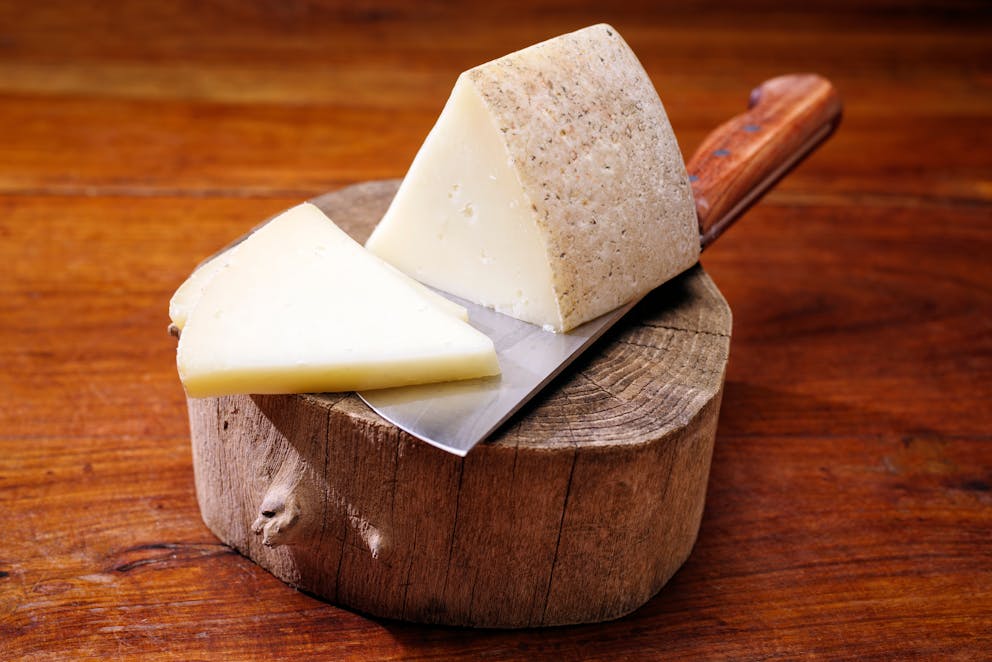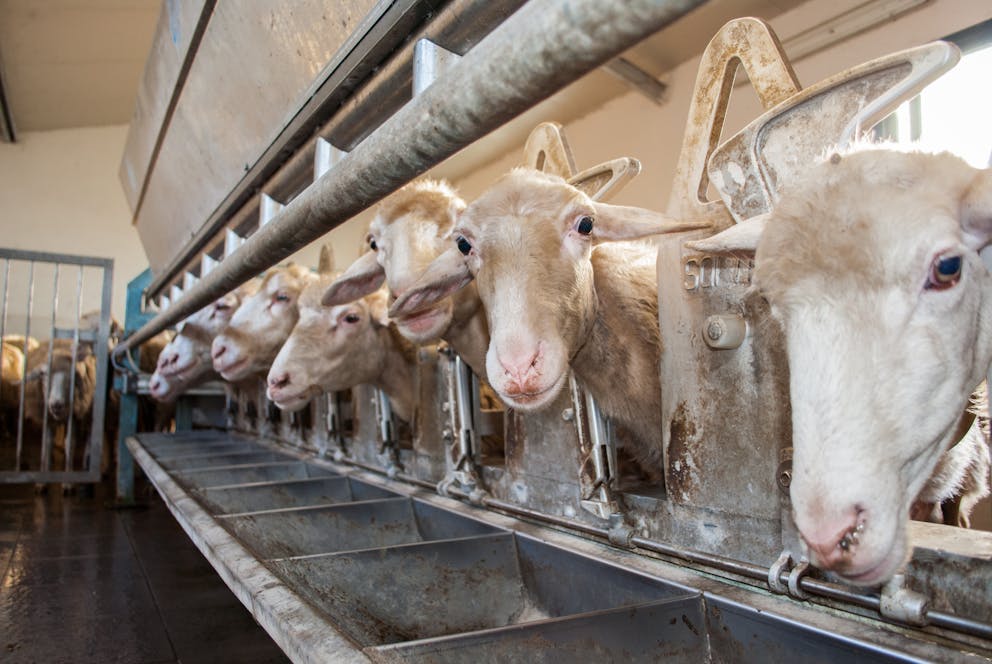10 Incredible Sheep Milk Cheese Benefits

Healthy Keto Acceptable Foods List
Explore a comprehensive list of foods and beverages that align with Healthy Keto®
Identify which foods support fat-burning and metabolic health
Discover nutritious options for fats, proteins, and vegetables to support your health goals
Learn about common foods that aren’t Healthy Keto-approved

Healthy Keto Acceptable Foods List
Explore a comprehensive list of foods and beverages that align with Healthy Keto®
Identify which foods support fat-burning and metabolic health
Discover nutritious options for fats, proteins, and vegetables to support your health goals
Learn about common foods that aren’t Healthy Keto-approved

Healthy Keto Acceptable Foods List
Explore a comprehensive list of foods and beverages that align with Healthy Keto®
Identify which foods support fat-burning and metabolic health
Discover nutritious options for fats, proteins, and vegetables to support your health goals
Learn about common foods that aren’t Healthy Keto-approved

Healthy Keto Acceptable Foods List
Explore a comprehensive list of foods and beverages that align with Healthy Keto®
Identify which foods support fat-burning and metabolic health
Discover nutritious options for fats, proteins, and vegetables to support your health goals
Learn about common foods that aren’t Healthy Keto-approved

Healthy Keto Acceptable Foods List
Explore a comprehensive list of foods and beverages that align with Healthy Keto®
Identify which foods support fat-burning and metabolic health
Discover nutritious options for fats, proteins, and vegetables to support your health goals
Learn about common foods that aren’t Healthy Keto-approved

Healthy Keto Acceptable Foods List
Explore a comprehensive list of foods and beverages that align with Healthy Keto®
Identify which foods support fat-burning and metabolic health
Discover nutritious options for fats, proteins, and vegetables to support your health goals
Learn about common foods that aren’t Healthy Keto-approved

Healthy Keto Acceptable Foods List
Explore a comprehensive list of foods and beverages that align with Healthy Keto®
Identify which foods support fat-burning and metabolic health
Discover nutritious options for fats, proteins, and vegetables to support your health goals
Learn about common foods that aren’t Healthy Keto-approved

Healthy Keto Acceptable Foods List
Explore a comprehensive list of foods and beverages that align with Healthy Keto®
Identify which foods support fat-burning and metabolic health
Discover nutritious options for fats, proteins, and vegetables to support your health goals
Learn about common foods that aren’t Healthy Keto-approved
Sheep milk cheese is one of the healthiest cheeses available. It’s keto-friendly, easy to digest, and rich in healthy fats.
Cheese derived from sheep milk is also loaded with essential vitamins, including vitamins A, D, and E. Learn about the 10 surprising benefits of consuming sheep milk cheese.

Is sheep milk keto-friendly?
Sheep milk is not keto-friendly. Sheep milk contains about 13 grams of carbohydrates per cup, which will kick you out of ketosis.
Sheep milk cheese, however, is keto-friendly. The bacteria that helps convert sheep’s milk into sheep’s cheese eats up most of the lactose—the sugar component in milk.
Sheep milk cheese nutrition facts
One ounce of sheep milk cheese contains:
105 calories
9 g total fat
0 g carbohydrates
6 g protein
157 mg sodium
58 g potassium
150 mg calcium
10 benefits of sheep milk cheese
The following are 10 of the benefits you can reap from consuming sheep cheese as opposed to other kinds of cheese.
1. Easier to digest
Sheep milk cheese is much easier to digest than cow or goat milk cheese. Sheep’s milk protein is not the same protein found in conventional cow’s milk products, which makes it easier for your body to process.
2. Lighter taste
Compared to cow’s milk or goat’s milk cheese, sheep's milk cheese has a much lighter taste. Sheep milk cheese is a crowd-pleasing cheese because its mild flavor is incredibly palatable.
3. High in protein
Sheep milk cheese has a high protein content and is rich in essential amino acids. Cheese derived from sheep milk has a high whey protein fraction, so it contains higher amounts of whey proteins compared to cow milk cheese and goat milk cheese.
4. Best-tolerated
Sheep cheese is the best-tolerated cheese when it comes to allergies and lactose intolerance. One of the key sheep milk benefits is that it contains A2 casein.
A2 casein is found in human milk, so it’s more suitable for human consumption. People who consider themselves lactose intolerant often find that A2 dairy products do not cause digestive upset.
5. High calcium-to-zinc ratio
Too much zinc can interfere with the absorption of calcium. Because sheep milk cheese has a high calcium-to-zinc ratio, the calcium it provides is highly absorbable.
6. Perfect calcium-to-phosphorus ratio
Similar to calcium, phosphorus plays a critical role in your bone mineral density and skeletal health. Too much phosphorus can inhibit the absorption of calcium and vice versa, so it’s important to have the correct ratio of these minerals. Sheep milk cheese provides a better ratio of calcium-to-phosphorus than other types of cheese can.
7. Rich in fat-soluble vitamins
Sheep milk cheese is an excellent source of three fat-soluble vitamins—vitamins A, E, and D. Fat-soluble vitamins play a critical role in many important functions of the body. They support immune function, bone health, eye health, and more.
8. Contains B vitamins
Sheep milk cheese contains high amounts of vitamin B12 and folic acid in its natural form of folate. It’s important to get B12 and folate in their natural form. Synthetic versions do not have the same effects on the body.
9. High in healthy fats
Sheep milk cheese contains double the amount of butterfat found in cow or goat milk cheese. Butterfat is the fatty component of milk, and is a great healthy fat to consume.
Sheep milk cheese is also rich in a polyunsaturated fatty acid known as conjugated linoleic acid (CLA). According to research published in the National Library of Medicine, conjugated linoleic acid has proven to be protective against neurological and cancer diseases.
Conjugated linoleic acid can also help you lose weight and potentially help increase muscle strength, exercise endurance, and metabolic rate—all while strengthening the immune system.
10. Rich in MCTs and short-chain fatty acids
Medium-chain fatty acids (MCTs) are a unique type of fat with several amazing health benefits. They are a powerful source of energy with anti-inflammatory and antimicrobial properties. Short-chain fatty acids play an important role in colon health and may even decrease your risk for cancer.
Consuming sheep milk cheese will help ensure you are getting enough MCTs in your diet.

Types of sheep milk cheese
Let’s take a look at some of the most popular sheep milk cheeses. While you may have heard of these cheeses, most people do not realize they are made of sheep milk.
Manchego cheese
Manchego cheese is a popular Spanish sheep milk cheese. It is typically aged and served with tasty treats like Serrano ham and dried figs.
Pecorino
Pecorino is Italy’s version of an aged sheep milk cheese. Pecorino is popular with many Italian foods and is often shredded or grated on top of pasta.
Feta
Feta is a delicious, crumbly sheep milk cheese often found atop fresh salads. Feta is a Greek cheese and is sometimes made with a combination of sheep and goat milk.
Halloumi
Halloumi cheese is a unique cheese that originates on the island of Cyprus. Halloumi tastes very similar to feta but has a completely different texture. Halloumi cheese is often served grilled or fried because of its high melting point.

Sheep milk cheese and dairy sensitivity
People who are sensitive to dairy often experience abdominal pain, bloating, gas, nausea, and diarrhea when they consume cow milk. However, many people are able to better tolerate other types of dairy, like dairy derived from sheep.
Two types of casein proteins are found in milk: A1 and A2. A1 is the most common type of casein in cow milk, but it can increase gut inflammation. A2 casein is often much better tolerated and doesn’t contribute to inflammation.
Sheep milk contains A2 casein, which is why people often find it easier to digest than other types of milk. It’s also found in human milk, goat milk, and certain varieties of cow milk (like milk derived from Jersey, Guernsey, Asian, and African cows).
How much sheep milk cheese can you have on keto?
Sheep milk cheese is an excellent source of both fat and protein and is 100% keto-approved. A 1-ounce serving of sheep milk cheese contains 0 grams of carbohydrates, making it the perfect cheese to eat on a ketogenic diet.
Around 3 to 4 ounces of sheep milk cheese per meal is ideal. Sheep milk cheese is less likely to cause digestive issues than cow milk cheese, so it’s okay to indulge in this healthy, tasty treat.

Key takeaways
The most important benefit of sheep milk lies in its high nutritional value. Sheep milk cheese is packed full of healthy fats and protein and contains virtually no carbohydrates, making it the perfect cheese to enjoy on keto.
Not only is it healthy, but sheep milk cheese is light-tasting and delicious. Between taste and health benefits, sheep milk cheese is sure to become an immediate favorite.
FAQ
1. Can you drink sheep milk on keto?
No. Sheep milk contains 13 grams of carbohydrates per cup, which can easily kick you out of ketosis. To remain in ketosis, keep your carbohydrate consumption between 20 and 50 grams per day.
2. Can you have sheep milk cheese on keto?
Yes, the good bacteria that turn sheep milk into sheep milk cheese consume the lactose in the milk. Lactose is milk sugar, so when it’s removed from fermented milk products like sheep milk cheese, the carbohydrate content is drastically reduced.
3. What are the benefits of sheep milk cheese?
Sheep milk cheese has several health benefits! It’s rich in B vitamins and fat-soluble vitamins and has the perfect ratio of essential minerals like calcium, zinc, and phosphorus.
Cheese derived from sheep milk is an excellent source of conjugated linoleic acid (CLA), an essential fatty acid that promotes weight loss and reduces the risk of certain cancers. Lastly, sheep’s milk proteins are also better tolerated than most cow’s milk proteins, so it’s more suitable for people with a dairy intolerance.
4. Is sheep milk cheese healthier than cow milk cheese?
Sheep milk cheese is healthier than most cow milk cheese and is better tolerated and utilized in the human body.
Most cow milk cheese contains A1 casein, which is actually a genetic mutation. A1 casein allows a harmful peptide known as BCM-7 into the digestive tract, which can cause digestive issues. The A2 casein found in sheep milk cheese does not cause this problem.
5. Is sheep milk healthier than goat milk?
Studies have shown that between sheep, cow, and goat milk, sheep milk is the healthiest. Goat milk is also a healthy option because it contains A2 casein, making it easier to digest than cow milk.
6. How much sheep milk cheese can I have on keto?
One ounce of sheep milk cheese typically contains 0 grams of carbohydrates, making it an ideal cheese to enjoy on keto. Around 3 to 4 ounces of sheep milk cheese per meal is ideal.
Source
https://www.ncbi.nlm.nih.gov/pmc/articles/PMC6413010/
Previous blog
The Top Benefits of Bile SaltsNext blog
Is Cassava Flour Keto-Friendly?Tags

Popular
08/21/2024
55K views
02/23/2025
46.3K views
11/18/2024
277.5K views
03/18/2024
11/21/2022




